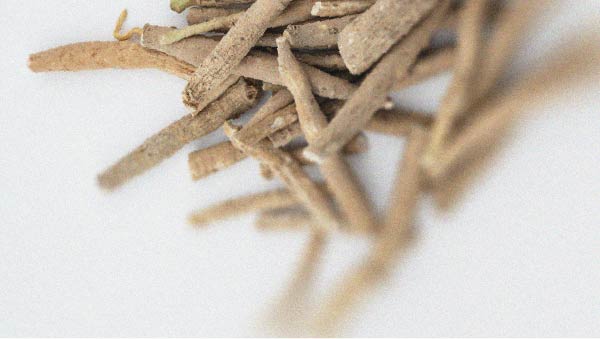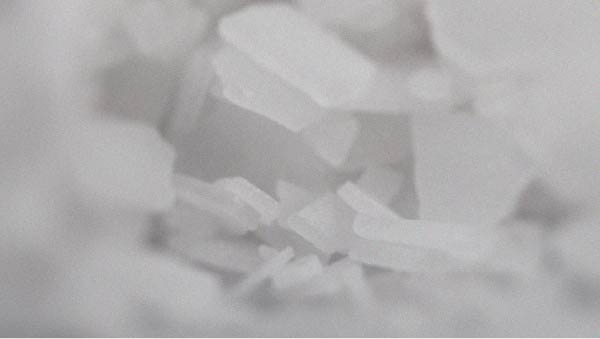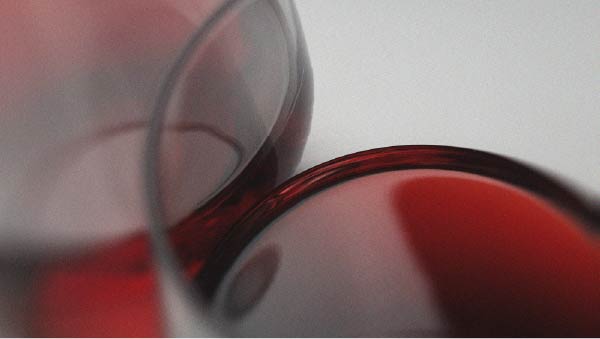The 7 best plant extracts for combatting hypertension
Hypertension: an often-silent disease with serious consequences. Here’s our guide to the best plants for controlling it!

What exactly is hypertension?
Hypertension is a very common vascular disease, particularly among those in the West leading a sedentary lifestyle and eating a high-fat diet. It is characterised by persistently-elevated blood pressure, which can have serious, even dramatic, consequences.Hypertension weakens the blood vessels and can cause strokes, myocardial infarctions and other cardiovascular damage.
The first step to take in reducing your risk of developing high blood pressure is to adopt healthy lifestyle habits. The top three are: eating a balanced diet, taking regular exercise and ensuring you get good quality sleep. But you can go further in helping to control your blood pressure by using phytotherapy to address the potential causes of hypertension. Let’s focus now on the best plants for improving the health of your arteries.
Flaxseed with essential fatty acids
While flaxseeds are sometimes used to ‘jazz up’ a salad, their considerable health benefits are often overlooked. But they contain a mix of several active compounds, and offer comprehensive effects against hypertension (1). Firstly, flaxseeds are rich in the well-known omega-3 alpha-linolenic acid. This polyunsaturated fatty acid (also found in rapeseed, soya, and nut oils, as well as chia seeds) is thought to have a vasodilatory effect – in other words, it ‘relaxes’ the artery walls. It also reduces inflammation of the blood vessels, one of the characteristics of hypertension.
Secondly, they are high in fibre-associated compounds called lignans, some of which act by reducing levels of angiotensin, a protein hormone that causes stiffness of the arteries.
Lastly, it’s thought that arginine also contributes to the health benefits of flaxseeds. This amino acid is known for its role in producing nitric oxide in the arteries, a compound that promotes vasodilation. It therefore makes sense to include flaxseeds in your diet whenever possible, grinding them first to get the maximum benefit from their properties. And to maximise your arginine intake, you could also take a supplement such as Arginine Silicate Inositol.
Turmeric with the miracle ingredient curcumin
Turmeric is often referred to as a superfood, and with good cause! A powerful antioxidant, anti-inflammatory, neuro-protector … This spice offers many benefits for our health. It’s the curcumin in turmeric which is primarily responsible for its stellar reputation. Curcumin’s ability to dramatically reduce inflammation already makes it a key ally in the fight against hypertension.
But researchers have shown that it also protects endothelial function (2). The endothelium is the tissue that lines the internal walls of arteries: its function is to regulate blood pressure, circulation and vasomotion (the oscillation of blood vessel diameter and blood flow.) In improving endothelial function, curcumin plays an important role in preventing hypertension. It’s therefore a good idea to add a generous sprinkling of turmeric to your dishes, soups and salads. If you want to maximise your curcumin intake, you can also take the concentrated supplement Super Curcuma.
Garlic with sulfur compounds
Garlic offers multiple benefits for health: antibacterial, anti-cancer, antioxidant … as well as a demonstrated ability to help lower blood pressure. Several mechanisms are involved in this: regulation of nitric oxide production, relaxation of endothelial cells and vasodilation, as well as thinning of the blood (3). Garlic actually reduces platelet aggregation and increases fibrinolytic activity - the dissolving of blood clots. In short, it offers comprehensive and scientifically-proven effects.
Scientists have identified garlic’s sulfur compounds as being responsible for the above-mentioned benefits - as they are for garlic’s characteristic smell. Garlic is also excellent for immunity, particularly black garlic which is readily available in supplement form (ABG 10+).
Hawthorn, for tackling the stress aspect
One of the causes of hypertension is anxiety, particularly the kind of chronic stress that results in harmful, long-lasting changes to body functions. These changes include the permanent ‘switching on’ of blood vessels, which leads to elevated blood pressure.
Hawthorn improves oxygenation of the heart and regulates stress-associated tachycardia, more commonly known as palpitations. Researchers have shown it has a direct effect on reducing hypertension (4). Taking hawthorn is therefore a gentle yet effective way of improving circulation. It is readily available as a dietary supplement (for example, in the product Cardio Booster).
Olive leaf with iridoids
We’re all familiar with the health benefits of olive oil but in this case, we’re focusing on the olive leaf. Olive leaves contain two complex compounds from the iridoid family: oleuropeoside and oleacein. (5)
Researchers have highlighted the remarkable ability of these compounds to regulate angiotensin. Reductions in levels of ‘bad’ cholesterol have also been observed following treatment with olive leaf (6), as well as decreases in blood pressure. In more ways than one, then, this plant exerts a powerful effect on cardiovascular health. How should it be consumed? Olive leaf can be easily absorbed in the form of a dietary supplement (Olive Leaf Extract).
Essential oils: lavender, bergamot and ylang ylang
Aromatherapy has also been found to help lower blood pressure in vulnerable people. A blend of lavender, bergamot and ylang ylang was shown to have a tangible impact when inhaled or used in massage. According to researchers, this blend lowered levels of cortisol, a hormone present at high levels when the body is under intense stress. (7)
Note, however, that essential oils should always be used with caution, and that they are contraindicated in young children and women who are pregnant or breastfeeding. It’s always best to seek advice on the right blends and dosages.
Blackcurrant with anthocyanins
This small, sharp-flavored berry is not only delicious in smoothies, but it’s also packed with anthocyanins, both the fruit itself and the leaves. Anthocyanins are the pigments that not only give the blackcurrant its characteristic dark purple colour, but also its ability to protect the blood vessels.Regulation of nitric oxide production, vasodilation, lowering of heart rate … the blackcurrant is a veritable guardian angel for the arteries (8). It clearly makes sense then to eat plenty of blackcurrants in order to benefit from their properties (but also to drink teas made from dried blackcurrant leaves or to take red berry-based supplements such as Optiberry®, for greater efficacy).
Hypertension is a serious condition and it’s important to consult your doctor if you have any concerns. Phytotherapy can be a valuable ally for preventing its development, or as a natural complement to conventional treatments.
References
- Delfin Rodriguez-Leyva, Wendy Weighell, Andrea L. Edel, Renee LaVallee, Elena Dibrov, Reinhold Pinneker, Thane G. Maddaford, Bram Ramjiawan, Michel Aliani, Randolph Guzman, and Grant N. Pierce, Potent Antihypertensive Action of Dietary Flaxseed in Hypertensive Patients, Hypertension, December 2013 Vol 62, Issue 6.
- Santos-Parker JR, Strahler TR, Bassett CJ, Bispham NZ, Chonchol MB, Seals DR. Curcumin supplementation improves vascular endothelial function in healthy middle-aged and older adults by increasing nitric oxide bioavailability and reducing oxidative stress. Aging (Albany NY). 2017;9(1):187–208. doi:10.18632/aging.101149
- Ried K, Fakler P. Potential of garlic (Allium sativum) in lowering high blood pressure: mechanisms of action and clinical relevance. Integr Blood Press Control. 2014;7:71–82. Published 2014 Dec 9. doi:10.2147/IBPC.S51434
- Walker, A.F., Marakis, G., Morris, A.P. and Robinson, P.A. (2002), Promising hypotensive effect of hawthorn extract: A randomized double‐blind pilot study of mild, essential hypertension. Phytother. Res., 16: 48-54.
- K. Hansen, A. Adsersen, S. Brøgger Christensen, S. Rosendal Jensen, U. Nyman, U. Wagner Smitt, Isolation of an angiotensin converting enzyme (ACE) inhibitor from Olea europaea and Olea lancea, Phytomedicine, Volume 2, Issue 4, 1996, Pages 319-325.
- Lockyer, S., Rowland, I., Spencer, J.P.E. et al. Impact of phenolic-rich olive leaf extract on blood pressure, plasma lipids and inflammatory markers: a randomised controlled trial Eur J Nutr (2017) 56: 1421.
- Hwang JH. [The effects of the inhalation method using essential oils on blood pressure and stress responses of clients with essential hypertension]. Taehan Kanho Hakhoe Chi. 2006 Dec;36(7):1123-34.
- Suzana Branković, Bojana Miladinović, Mirjana Radenković, Marija Gočmanac Ignjatović, Milica Kostić, Katarina Šavikin, Dušanka Kitić, Hypotensive, cardiodepressant, and vasorelaxant activities of black currant (Ribes nigrum ‘Ben Sarek’) juice. Canadian Journal of Physiology and Pharmacology, 2016, 94:1102-1105.
Keywords
2 Days
repeat customer
recommended by my doctor. easy to create an account. Discounts and specials are appreciated. packaging and delivery is dependable. Capsules easy to digest. I've had some some capsules and tablets that are broken inside their bottles.
Kokee
7 Days
Order was shipped on time and packaged…Wonderful Jobs!
Order was shipped on time and packaged excellently.
DMHoge
13 Days
great products and prices
great products and prices
Marie
19 Days
Easy to navigate site
Easy to navigate site, had what I was searching for, good price. easy order-check out
James Tucker
25 Days
My skin is clearing up nicely!
Pretty good for my skin so far.
Christian
27 Days
The new packaging is excellent
The new packaging is excellent - finally! No more squashed boxes and torn envelopes.
GORAN
28 Days
Great Product
Great Product
Larry Garrett
33 Days
Quick shipping
Quick shipping; good price. No issues!
Mary McCarty
34 Days
Thr product is very good and is helping…
Thr product is very good and is helping me on my health. Then is always on time
LUGO Luz
37 Days
Buying was fine
Buying was fine. I had problems with the website not recognizing my login info, and had to call to get it fixed. Other than that, everything was good.
David S. Clark
37 Days
Your super maca and super ginseng are…phenomenal
Your super maca and super ginseng are phenomenal supplements that compliment each other when taking them together. Fantastic feeling of well-being and lots of mid day energy without the crash.
Keith Mason
40 Days
I have had amazing results with every…
I have had amazing results with every supplement I've purchased. I am extremely satisfied with this company
kirstin Torres
40 Days
Fine products
Fine products . They are on the leading edge of online supplements. The only issue -so far-is they sometime run out of subscription items.
Jason Argos
42 Days
The ordering process is very user…
The ordering process is very user friendly and the products always come in a timely manner.
CARTER Rhonda
44 Days
The price for Dr
The price for Dr. Pero's AC-11 is reasonable and in line with his views. (my former colleague). Keep it pure.
CAMPBELL Clayton




